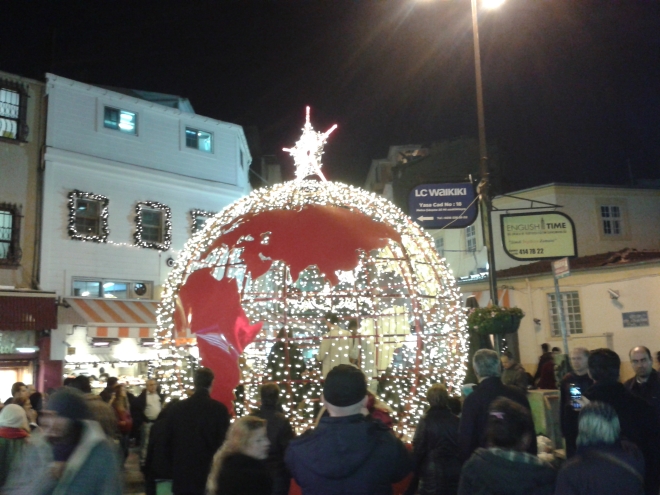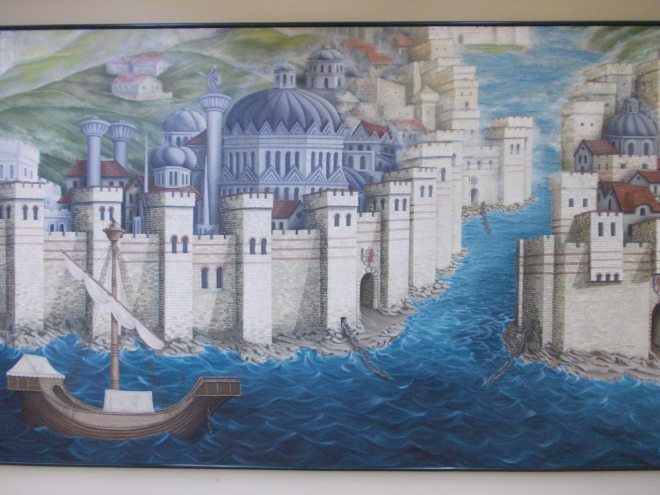Trash is the most popular form of art. Be it the kind of soap opera that turned Turkey into the world’s second biggest exporter of TV series, „Fifty Shades of Grey“ or the musical „Cats“. Literature studies rarely discusses what it considers simple fiction, while educated folks often only admit consuming it with a busted giggle. Think of that time when your friends discovered that cheesy pop rock album as they unexpectedly showed up in your room when you were fourteen. Yeah, you know what I’m talking about, don’t you?
But besides academics raising their noses into the stratosphere, I argue that trash is indeed well worth analysing.
By definition, trash itself isn’t meant to be deep. „The Avengers“ to me and „Doctor Hillbilly Inbred“ to my grandma are like fast food. They go in easily, you know what to expect and your brain gets flooded with pheromones in realtime while you unravel the plot and the motifs as easily as my cat unravels shoe laces.
Hey, did I just refer to the 225 million dollar blockbuster „The Avengers“ as trash? It kinda is. There is no hidden subplot, barely necessity or appeal to approach on a meta level, little room for interpretation in the motifs of the characters, who themselves could have been designed by a ten year old, etc. The essential difference between „The Avengers“ today, this (sadly fake) 1978 version in which the Avengers fight against Kiss, as well as this all too real „Captain America“ from 1966 is, well, a 225 million dollar budget. The producers didn’t intend to make you reflect the world around you. What they wanted to create – and masterfully did so – was a spectacle for the senses with well-choreographised action scenes and characters easy to project on.
Still not content with „The Avengers“ being trash because it’s somewhat state of the art in mainstream film making? Well, 36 years ago, so was the first „Mad Max“.
The other day, I saw „The Phantom of the Opera“ here in Istanbul. It was a magnificient production. The chandelier rose to the ceiling right in front of us, the music blasted our thoughts, the phantom’s dungeon was as creepy and mystical as ever anticipated. Yet, in the end, the plot is based upon a 1909’s gothic novel, one of hundreds of spooky stories written around the turn of the century. Given the orchestar, the stage set, the audience’s implicitly learned expectations and the touch of Andrew Lloyd Weber, any other gothic novel of that era could have been just as tantalising. But from the myriad of shockers written en masse in the fading Victorian Age, this one and Bram Stoker’s „Dracula“ made it into the canon. Comparably, from the myriad of bad teen stories haunting the internet, the „Twilight“ series made it to 120 million sales.
Coincidence, one might say. Alas, scholars of the humanities don’t believe in coincidence on this scale.
I believe that tacky works of literature (e.g. gothic novels) can, intentionally or not, capture the stereotypes and expectations we are inclined to have due to our similar socialisation. If done well, our mental categorisations are depicted in the characters of the work at a level we don’t consciously comprehend.
Take, for instance, „Dracula“. A flamboyant foreign gentleman seduces the young girls of the British upper class, violating established values. That’s the core of the story, plus special effects like bats and immortality.
The resulting death of the young women by their guardian’s hands can be understood in the physical way, but also as a social death. To prevent further damage to the family renomation, represented in the virtue of its females, the good Victorian Brits see no other option but to exile the girls. In „Dracula“, this ends bad for the antagonist outcast as well. In „The Phantom of the Opera“, a few years of rapidly advancing social awareness later and originally set in comparably libertine France, the culprit is ultimately given a chance to understand his wrong-doing. He chooses to let go of the traditional healthy-brave-rich-young-male/healthy-beautiful-young-female couple.
Is „Dracula“ a sexist and racist piece that promotes violence against fringe groups? It’s definitely a story that processes the middle-class fears and fantasies not only of the time of its creation. And it’s not just about female fantasies concerning rich men longing for them in candle-lit ballrooms, but as much about male dreams to enslave young girls by sexual allure.
To me, understanding how trashy stories can make it to huge popularity means to understand human desires, for example for simplicity. Since personification, in the case above of sexual desire, works well to make vague abstractions comprehensible to us, can’t this be applied to fields outside of literature studies?
Sure can. Entities like „the devil“ or „demons“, known to almost any culture, are a combine of all the things we collectively consider sinful. Only that if we were actually to define what is sinful, no society would ever reach full consensus. Creating a something that has a face and limbs helps us to comprehend the concept of „evil“, while at the same time eluding costly discussions on what exactly is „evil“. Double-kill!
Media also utilizes our mental imagery. For instance, German newspapers with headlines about Islam will often come up with similar pictures of women in burqas, kalashnikovs, bearded men, etc., inadvertently feeding common pre-judicism. Apparently, US media after the 2001 terror attacks prefered to show those pictures of men saving women from the ruins and the rubble – besides Twin Tower victims having been predominantly male. A dude saving a chick is kind of what we expect, and so it’s delivered. Our subconscious is used to convey messages to us – a picture painting a thousand words. To guarantee widespread understanding of the symbolicism of the image, equally widespread stereotypes are drawn upon (male hero, female victim).
Confirmation of our immanent views is merely a side effect in normal media, as opposed to if we’d go into propaganda. I find propaganda interesting, actually, because I enjoy unravelling all those cautiously construced manipulations and ponder how they make use of the audiences mental imagery.
Revolutions usually have a face connected to them, too. Lajos Kossuth is the tragic hero of the Hungarian revolt of 1848. If I could describe with a few words what he symbolises, his name would not need to be remembered – plus, I don’t even know it. But you surely have heroes in your own country’s history, and they certainly are – to an extent – constructed, idealised, glorified.
If you are Turkish, you might think of Atatürk, founder of modern Turkey. Since Mustafa Kemal symbolises more than Mustafa Kemal, criticising him has always been interpreted as being critical of all he respresents in the eyes of the Turkish public. What exactly that is will be vaguely the same for most Turks, but differ in more or less important fringe aspects of Turkish identity (is drinking alcohol part of Turkish culture?). A situation which causes trouble till today.
By why do we even bother so much about personal representation? Generallys speaking, it’s a bit like in learning a foreign language; first, you learn to talk about people, then come places. By the time you discuss System Theory in a foreign language, you better have acquired yourself some C2 skills.
Talking (and thinking) about people needs the least abstraction, next to places. Besides other reasons, perhaps that’s why most European societies formed monarchies for very long – until an increasingly educated public demanded nationalism in the 19th century, swearing allegiance to geography and community rather than individuals. Doing so required a much higher capability of abstraction, and it requires an even higher capability of abstraction to identify with ideas, such as the complexity that is a pluralistic democracy. Well, technically, Stalinist Russia called itself a communist society, thus offering an ideology as the common denominator. But obviously, it succumbed to a semi-global Stalin cult. It’s an attack on two fronts, if you opt to see it like that.
So, next week, I will go to the movies and watch the newest „Mad Max“. And while the normal audience will gaze at the explosions and be stunned by the speed and force of the furious fortress-phalluses, I will sit there, with my finger on the chin, thinking some uppity bourgeois crap like „I wonder if the antagonist girl misses an arm because the viewer is assumed to associate bodily defects in women with viciousness“. Well, and I will also gaze at the explosions.









